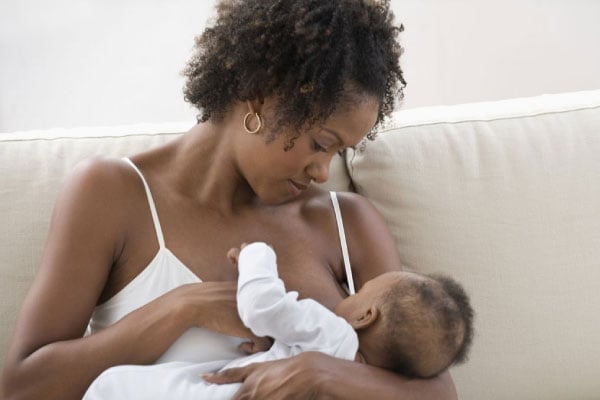Donor breastmilk can save lives

Catriona Waitt
“I did not know my breastmilk would not come immediately after I gave birth to my son,” Maureen says.
“I did not know my daughter would fail to suckle from my breast and that I would need to pump, freeze milk and bottle feed her the breastmilk for an entire year after she was born,” Dora says.
These experiences are all too common in Uganda.
World Breastfeeding Week (#WBW2022) led by the World Alliance for Breastfeeding Action (WABA) has the theme of ‘Step Up For Breastfeeding: Educate and Support.’
The week run from August 1 to August 7.
Women require different care and guidance during pregnancy and before birth (antenatal stage), labour and delivery, during first six weeks after birth (postnatal care), and then for ongoing care including special circumstances and emergencies.
WABA refers to this continual provision as the “warm chain of support for breastfeeding” campaign, which places the mother-baby dyad at the core. It strives to link different actors across the health, community, and workplace sectors to provide a continuum of care during the first 1,000 days.
Community stakeholders such as employers, environmentalists, male partners, the media and young people play an important role in supporting national and international advocacy and programmes to protect, promote and support breastfeeding. Through collaborative advocacy, it becomes possible to close current gaps in breastfeeding support. Such multidisciplinary community partnership comprises the “warm chain of support for breastfeeding” proposed by WABA.
What many of these interventions have not mentioned is that breastfeeding may look different for many mothers. For some it means expressing milk to feed their infant via a bottle or a tube. Some others are not able to produce any milk and have to depend on commercial supplements, cows’ milk or donated breastmilk.
In Uganda, despite advances in maternal and child health, the Neonatal Mortality Rate has not changed over two decades, remaining high at 28/1,000 live births, significantly above the United Nations 2030 target of 12 per 1,000 . Uganda’s situation is typical with complications of prematurity accounting for 25 percent of these neonatal deaths. Many preterm deaths can be prevented if simple interventions, including, preventive obstetrics, kangaroo care and feeding support are introduced.
Breastmilk is known to provide the best nutrition for all infants. In light of the fundamental role supporting infant growth, development and health, the World Health Organisation (WHO) recommends exclusive breastfeeding for six months for all infants. When a mother’s own milk is insufficient, she should firstly be supported with adequate nutrition, lactation counselling, breast milk expression techniques and taught to feed her infant with her own breast milk using an appropriate method. Donated breast milk is recommended by WHO as the next breastfeeding option if a mother’s own milk is insufficient, before considering artificial supplementation. For premature and low birthweight infants, utilisation of breast milk is even more important to prevent life threatening complications.
It is, therefore, of key importance for Uganda to draw from the materials and guidance which form the basis of the #WBW2022 campaign and to raise awareness of alternative methods of infant feeding such as donor human milk banking. We have one established human milk bank in Uganda, which is unable to meet the need in the metropolitan region of Kampala.
Globally, informal milk sharing, and in some low resource settings, even cross-feeding or ‘wet’ nursing have been successful where milk banks are unable to meet the demand for breast milk or are non-existent. The endorsement of health workers and families who have benefited from the practice presents an opportunity to set up safe milk sharing practices.
While mothers are leading in the milk sharing initiatives outlined above, the engagement of public health experts to handle the manageable risks involved is important if we hope of growing a sustainable supply of donated human milk.
Prof Catriona Waitt and Ms Tracy Ahumuza members of the ATTA Breastmilk Community leadership




